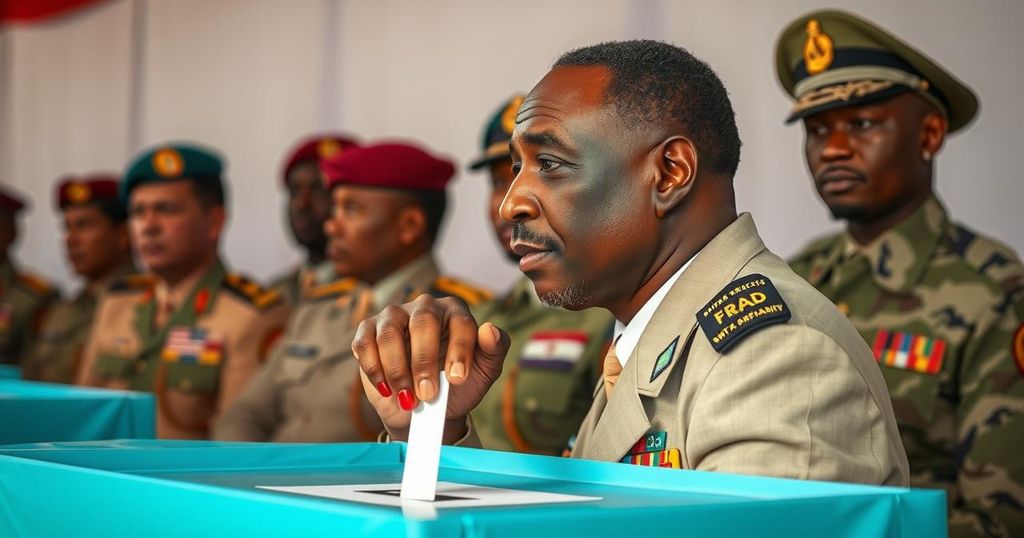Chad Votes in General Election Amid Calls for Boycott and Voter Apathy

Chad held a general election on Sunday under military rule, with turnout estimated at just 38 percent after opposition calls for a boycott. Citizens expressed skepticism about the integrity of the electoral process, while the government claimed the elections are key to transitioning to democracy. The involvement of military and nomadic votes contrasted sharply with the widespread apathy among the general populace, posing significant challenges for the nation’s democratic future.
Chad conducted a general election on Sunday amid ongoing military rule, a move that the government claims is pivotal for transitioning towards democracy. However, voter turnout was disappointingly low, with reports indicating only 38 percent participation, largely in response to opposition calls for a boycott. Opposition leaders, including Succes Masra of the Transformers party, asserted that most citizens had heeded their calls, stating that fabricated results had already been predetermined.
The election is noteworthy as it allows candidates aligned with President Mahamat Idriss Deby Itno to dominate the political landscape. President Deby, who assumed power following a military takeover in 2021, had encouraged widespread voter participation through social media, labeling the election a “historic day.” However, citizens such as Herve Natouingan expressed skepticism about the electoral process, deeming it pointless to engage in what they perceive to be a lack of genuine voting opportunities.
Despite the lack of enthusiasm from the general populace, the election management agency reported significantly higher turnout percentages among military personnel and nomadic communities, indicating a more engaged voting segment in these areas. There is a palpable sense of urgency among nomadic representatives regarding local conditions, exacerbated by climate issues affecting their livelihoods.
Polling has been conducted under the scrutiny of domestic and international observers, amid accusations of electoral malfeasance from opposition parties. Furthermore, the backdrop of violence from Boko Haram in the region adds to the tense political climate. The government continues to promote these elections as a crucial step in the shift towards democracy, following a history of governance marked by autocracy, particularly under the long tenure of Deby’s predecessor, his father.
As Chad embarks on this crucial electoral phase, the implications of low voter engagement and persistent political discontent cast a shadow over the future of democratic processes in the nation.
The elections in Chad were characterized by the intersection of military rule and a call for democratic transition. Following the death of long-time leader Idriss Deby, his son, Mahamat Idriss Deby Itno, garnered power through a military coup in 2021. The transitional government has faced significant challenges, including opposition calls for boycotting the elections, which they believe are tainted by pre-decided outcomes. The political environment is further complicated by security threats from groups like Boko Haram and broader socio-economic issues affecting the population, including climate change repercussions on rural livelihoods.
In summary, the recent general elections in Chad highlight significant tensions between the ruling government and opposition factions amid a backdrop of military governance. With abysmally low turnout fueled by boycott efforts, the election’s results may be viewed as predetermined, raising questions about the legitimacy of this purported step towards democracy. The presence of both local and international observers suggests some level of accountability, but underlying issues such as political disenfranchisement and security threats remain critical hurdles for genuine democratic progression in Chad.
Original Source: www.myleaderpaper.com






